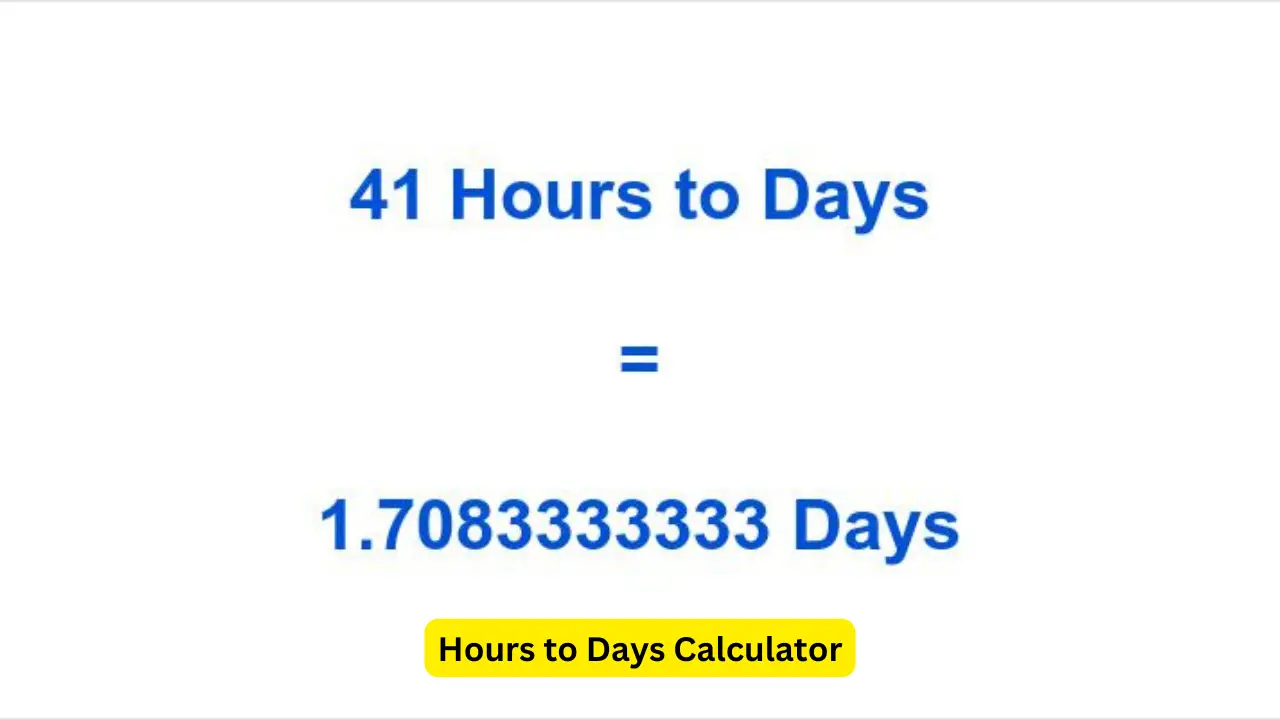Converting hours into days is a straightforward mathematical process that can be incredibly useful for planning and scheduling. Whether you’re managing a project, planning a vacation, or simply curious about time calculations, knowing how to convert hours into days can help you organize your time effectively. This article provides a comprehensive guide on how to calculate days from hours, complete with examples and practical applications. Hours to Days Calculator
The Basics of Time Conversion
Time is often measured in units such as seconds, minutes, hours, and days. Understanding how to convert between these units is essential for efficient time management. The conversion from hours to days is particularly common in various fields, including business, education, and personal planning.
- Conversion Formula
- The basic formula for converting hours to days is straightforward:
Days=Hours24\text{Days} = \frac{\text{Hours}}{24}
This formula is based on the fact that there are 24 hours in a day. By dividing the total number of hours by 24, you can easily determine the equivalent number of days.
- The basic formula for converting hours to days is straightforward:
Example Calculations
- Converting 72 Hours to Days
- To convert 72 hours into days, use the formula:
72 hours=7224 days=3 days72 \text{ hours} = \frac{72}{24} \text{ days} = 3 \text{ days}
Thus, 72 hours is equivalent to 3 days.
- To convert 72 hours into days, use the formula:
- Converting 150 Hours to Days
- For 150 hours, the calculation is:
150 hours=15024 days≈6.25 days150 \text{ hours} = \frac{150}{24} \text{ days} \approx 6.25 \text{ days}
This shows that 150 hours is approximately 6.25 days.
- For 150 hours, the calculation is:
Practical Applications
- Project Management
- In project management, accurately estimating the time required to complete tasks is crucial. Converting hours into days helps managers allocate resources and schedule project timelines effectively.
- Travel Planning
- When planning trips, understanding the duration in days can help with booking accommodations and creating itineraries. Knowing how many days correspond to a certain number of hours ensures a smooth travel experience.
- Academic Scheduling
- Students and educators often need to convert hours into days for scheduling classes and assignments. This conversion aids in balancing workloads and meeting deadlines efficiently.
Online Tools and Calculators
For those who prefer a quick and automated solution, online calculators are available to perform time conversions. These tools allow users to input a number of hours and instantly receive the equivalent in days. Many calculators also offer additional features, such as converting between other units of time or displaying results in different formats.
- Benefits of Using Calculators
- Accuracy: Automated calculators eliminate the risk of human error in manual calculations.
- Convenience: Online tools are accessible and easy to use, providing instant results.
- Flexibility: Many calculators offer options to convert time units in both directions (e.g., days to hours).
Conclusion
Converting hours to days is a simple yet essential calculation for effective time management. By dividing the number of hours by 24, you can easily determine the equivalent number of days, aiding in various planning and scheduling tasks. Whether you prefer manual calculations or online tools, understanding this conversion helps you make informed decisions in both personal and professional contexts. By mastering time conversion, you can optimize your daily routines and ensure a more organized approach to managing time.
